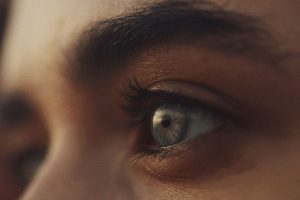DUBAI / WAM
Noor Dubai Foundation, in collaboration with the Katsina state Ministry of Health, Nigeria the State Ministry of Education and State Universal Basic Education Board, launched a school eye screening programme in
all elementary schools in Katsina, Daura and Funtua towns of Katsina state Nigeria, as part of its ongoing comprehensive eye care programme, which was launched in the state in 2019.
To guide the implementation of the programme and in line with the evidence-based approach to all our programmes, a baseline cross-sectional research to measure the prevalence, magnitude and types of refractive error and other eye diseases among the pupils was conducted in the state in February and March this year.
The school eye screening programme aims to accelerate the United Nations Sustainable Development Goals (SDG) number 3-Good health and well-being, number 4- quality education and number 5- gender equality. It intends to increase access of eye care to school children and their teachers in view of the significance of sight in the psychological, social and academic development of children.
The school eye screening will cover 160,000 elementary school pupils and 3,000 teachers within 18 months. They will be screened for eye diseases and refractive error. The screening will cover the whole of the 194 public elementary schools in the big cities. Eighty school teachers will be trained to conduct the screening under the supervision of 8 experienced
ophthalmic nurses.
The programme plans to provide free spectacles to over 3,000 pupils and teachers that may require glasses. Three optical workshops will be developed to provide these glasses, and 12 vision venters will be set up across the state to improve access to refractive error services as the disease is the major cause of visual impairment.
This school eye screening is a major component of the Noor Dubai’s participation in the Global council of the United Nations SDG (Sustainable Development Goals)- a network of decision makers from governments, international organizations, academia, and the private sector coming together to share
innovative practices and
discuss the creative implementation of the 17 SDGs at national and global levels. The Adult eye services component of the Comprehensive eye care programme, which started in the last quarter of 2019, had so far achieved the following; 6335 people have had cataract surgery and another 15,616 have had their eyes screened and treated; 264 health personals including doctors, optometrists, nurses and primary health workers have been re-trained; 128 pieces of ophthalmic equipment, 6,000 ophthalmic surgical blades and surgical outfits were supplied to 3 eye clinics; and one eye hospital and two eye clinics were renovated and refurbished to enhance ophthalmic services.
 The Gulf Time Newspaper One of the finest business newspapers in the UAE brought to you by our professional writers and editors.
The Gulf Time Newspaper One of the finest business newspapers in the UAE brought to you by our professional writers and editors.
